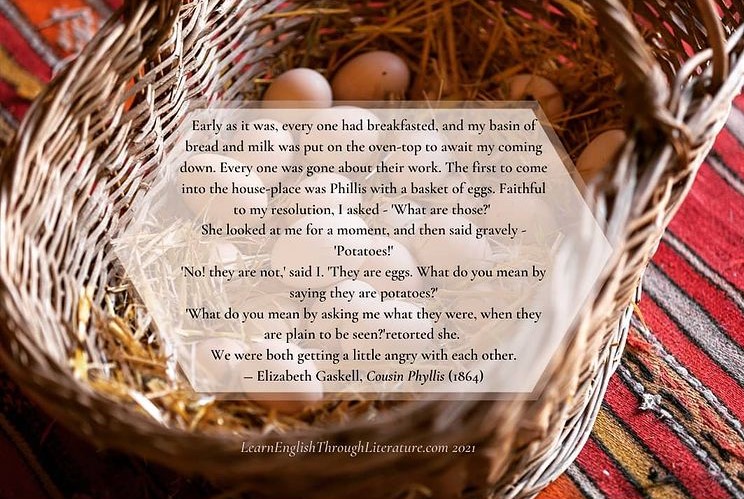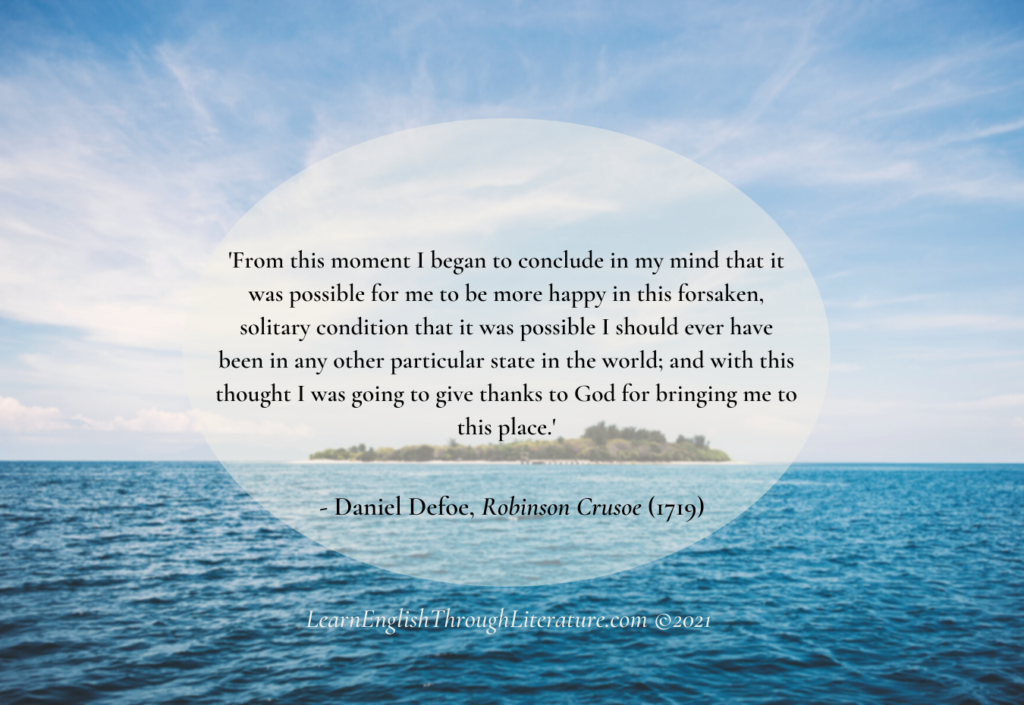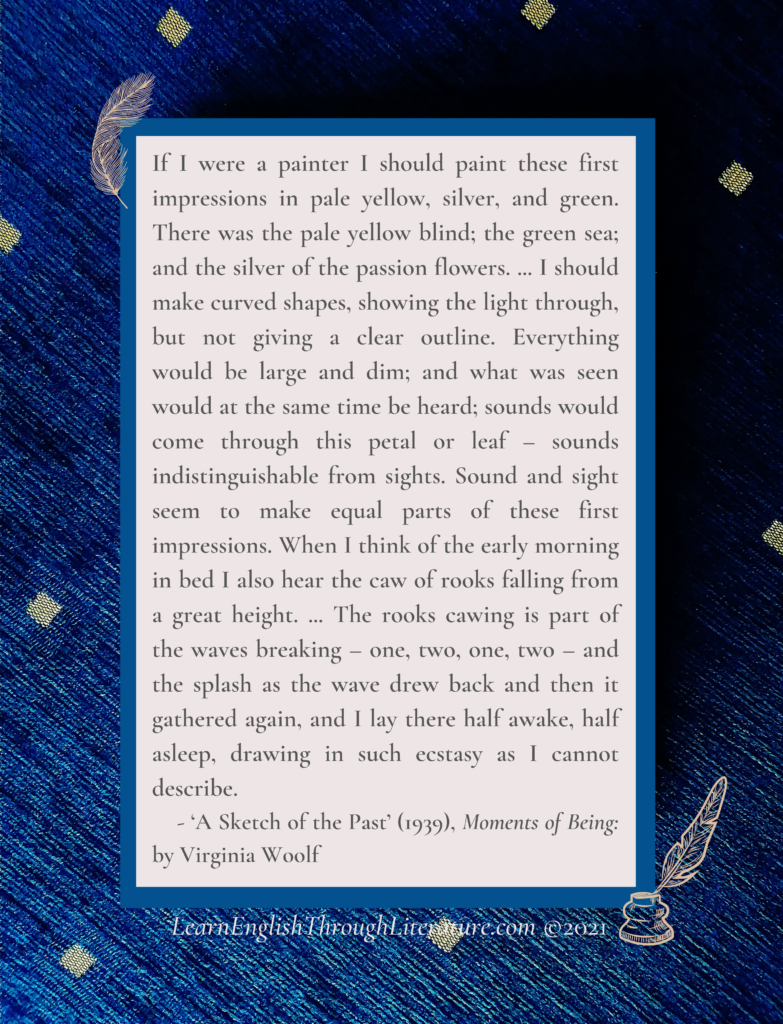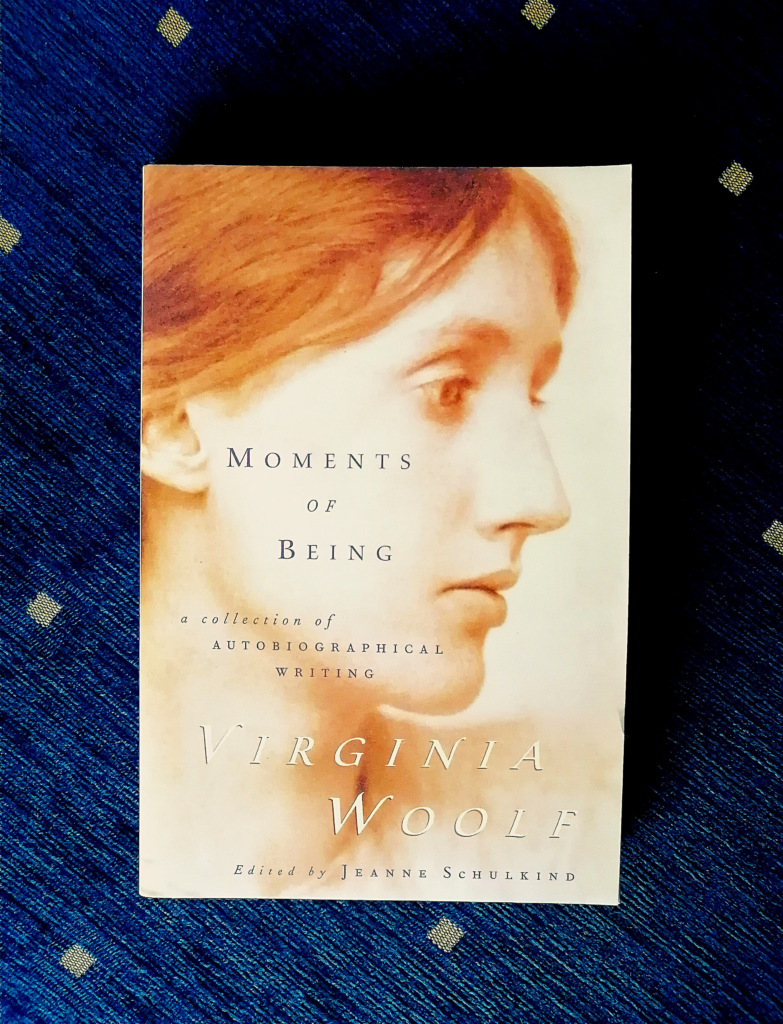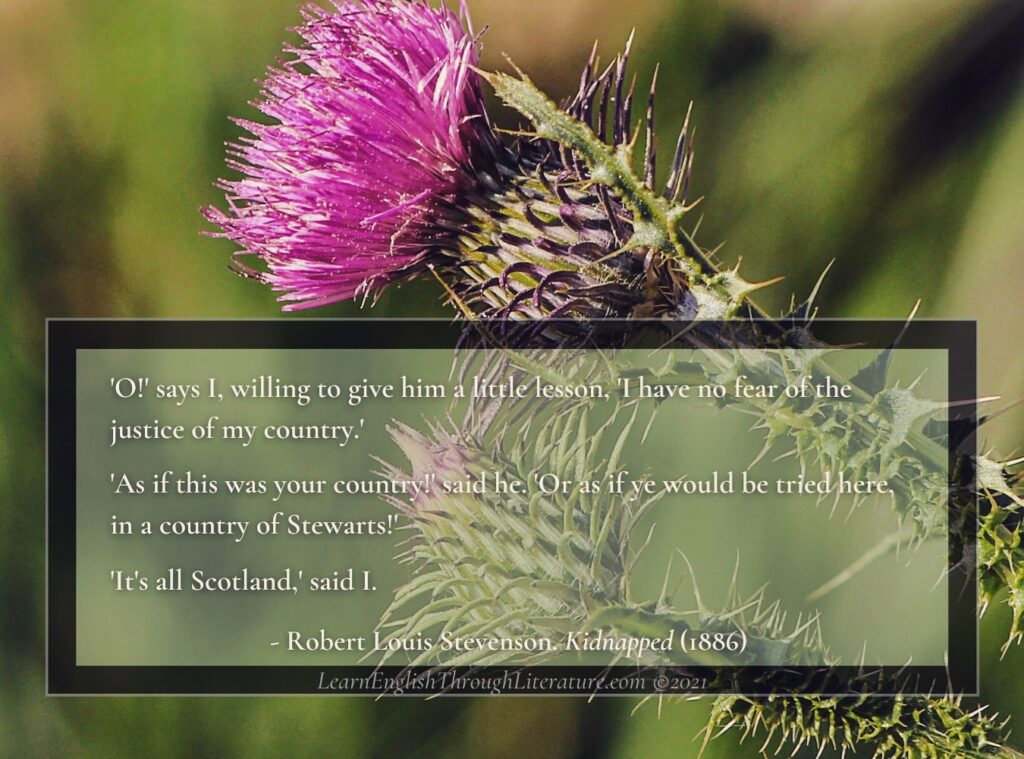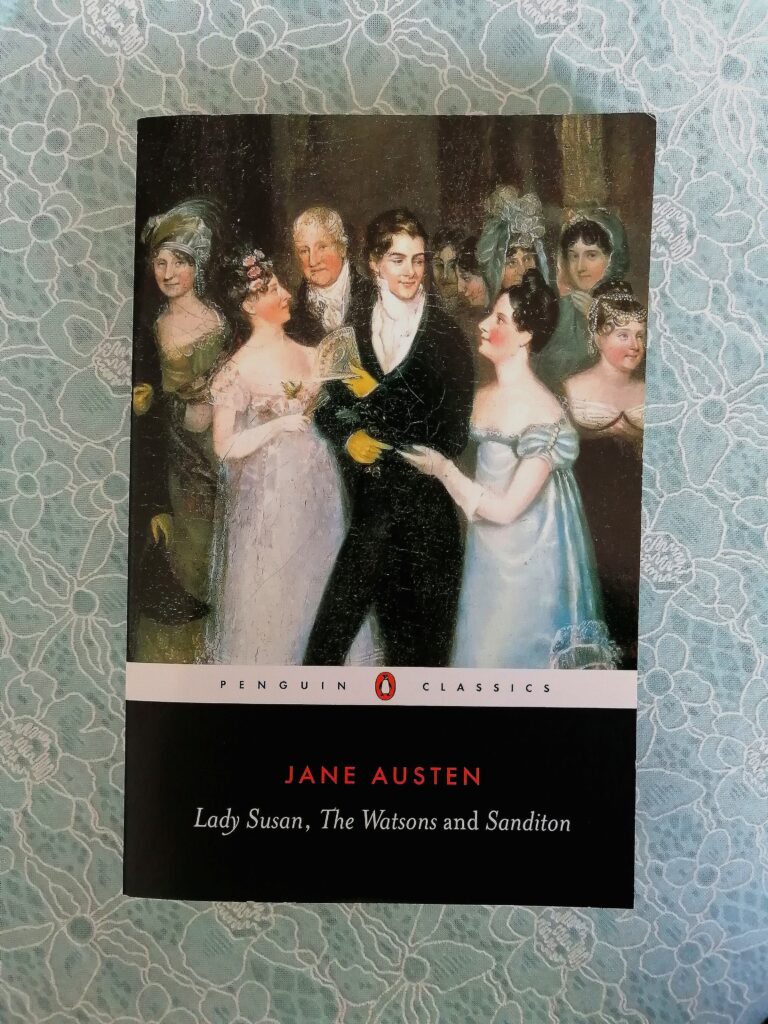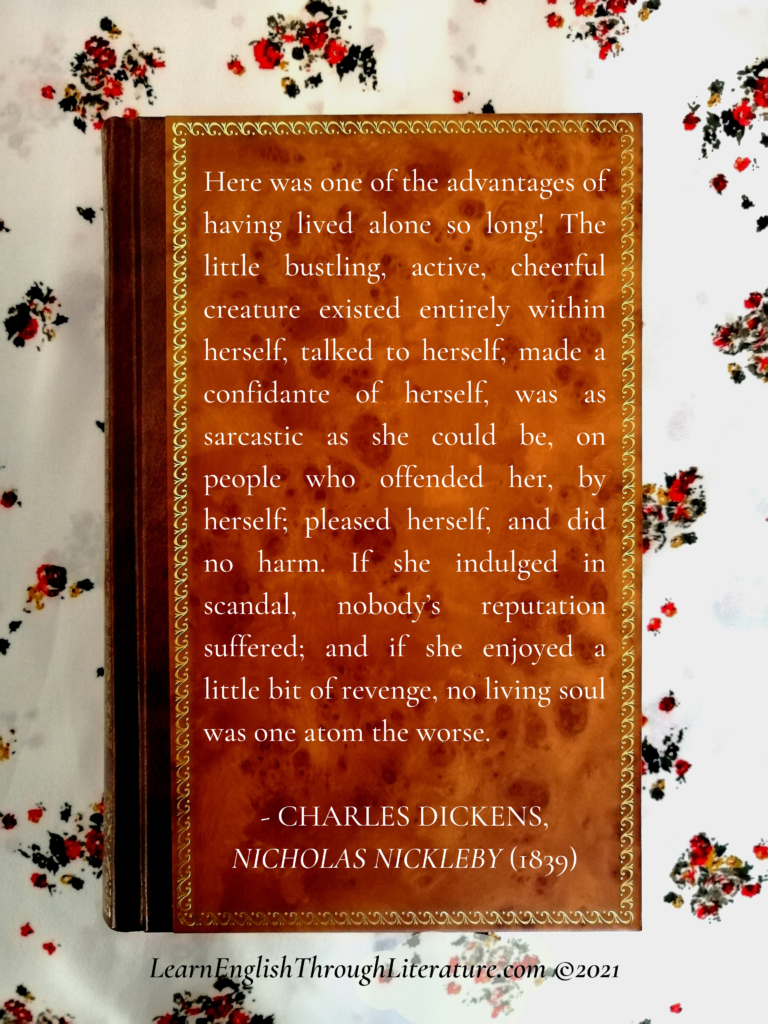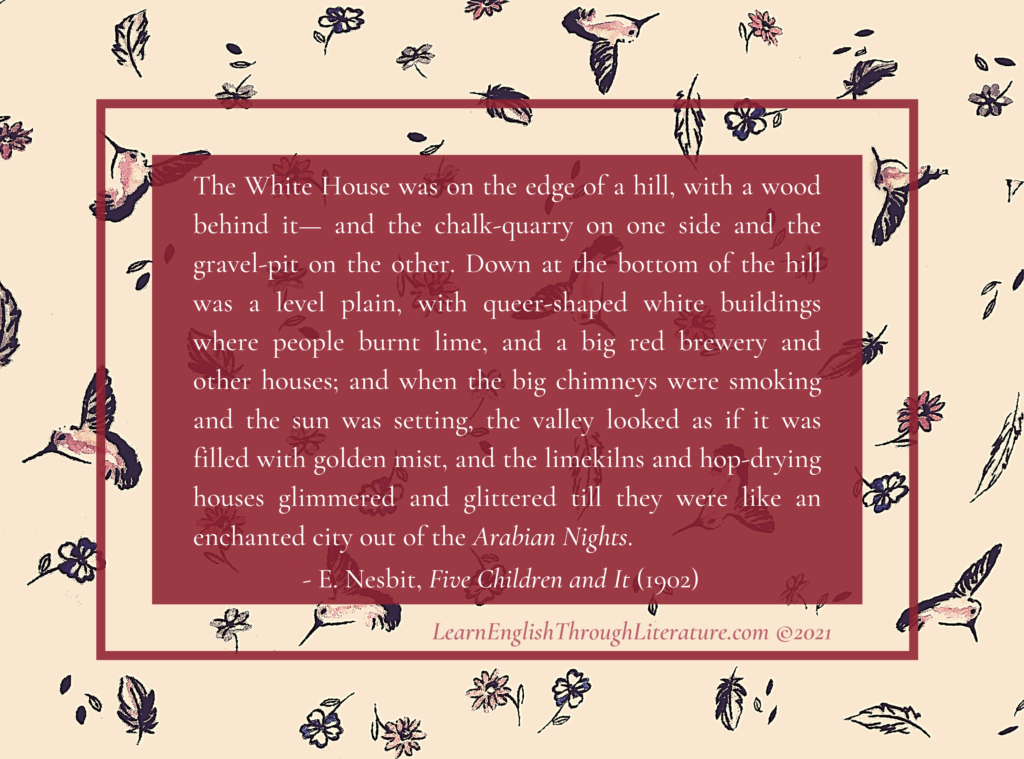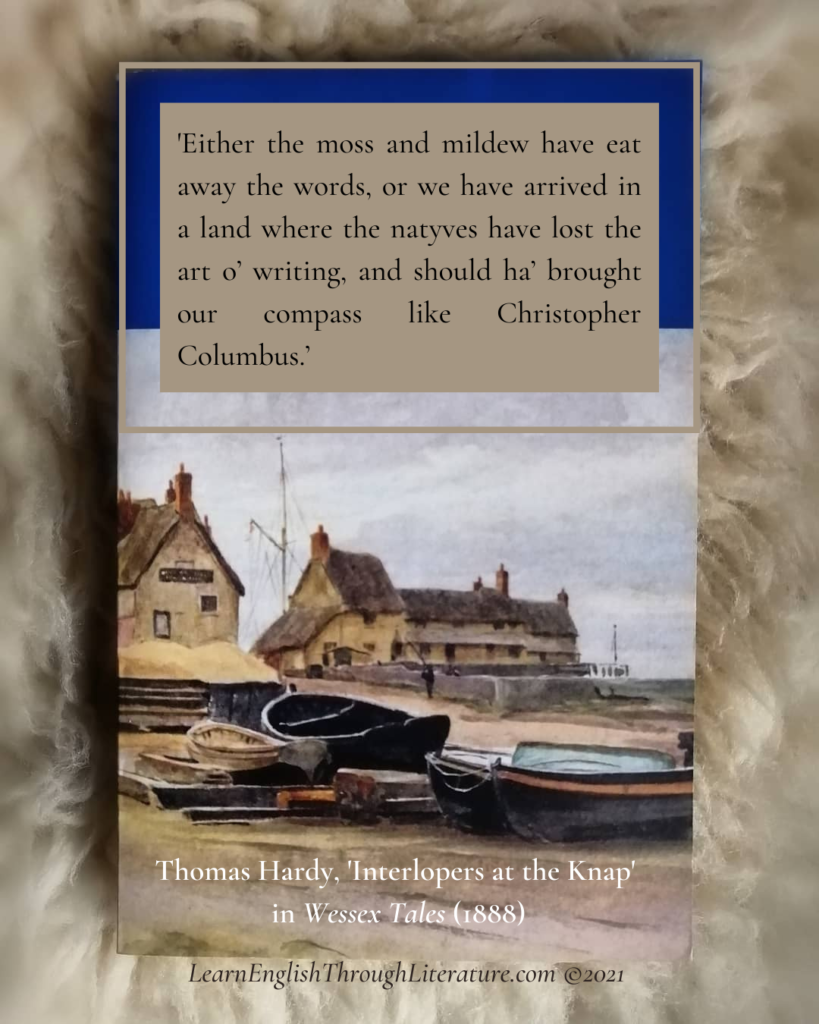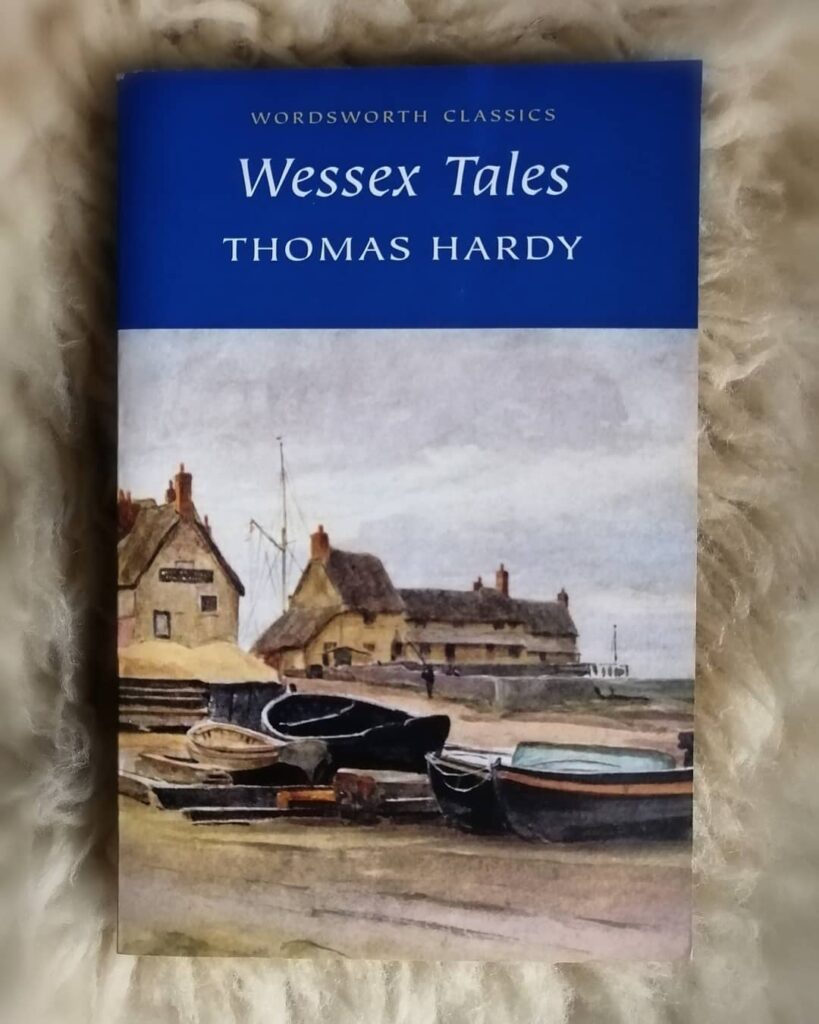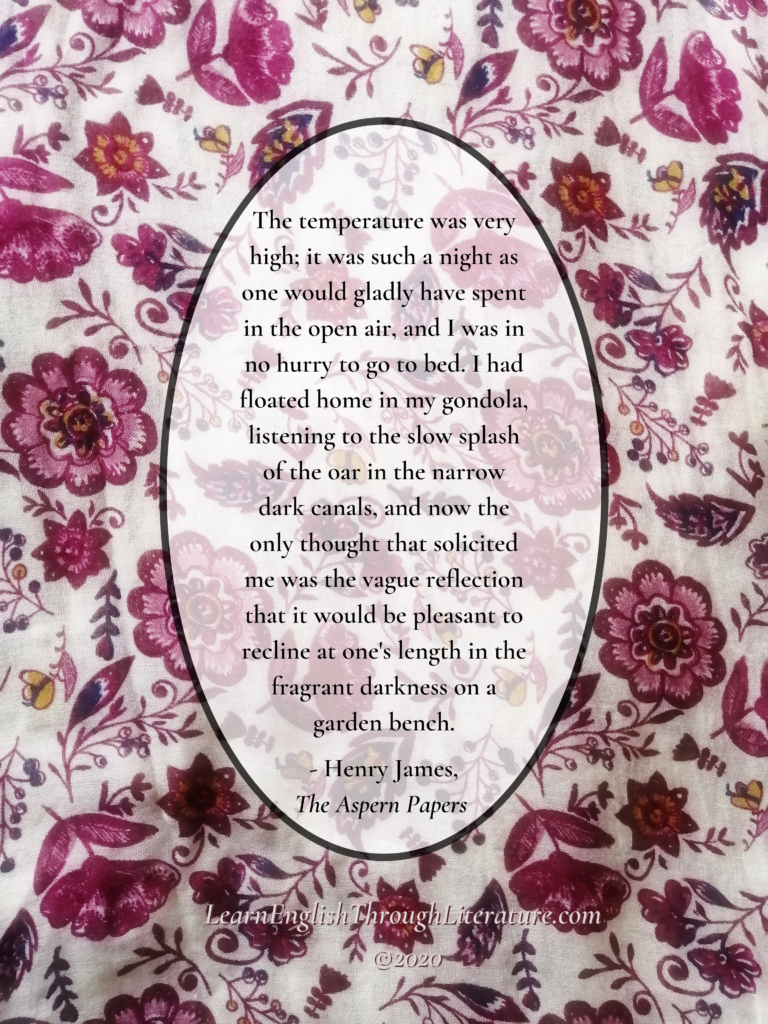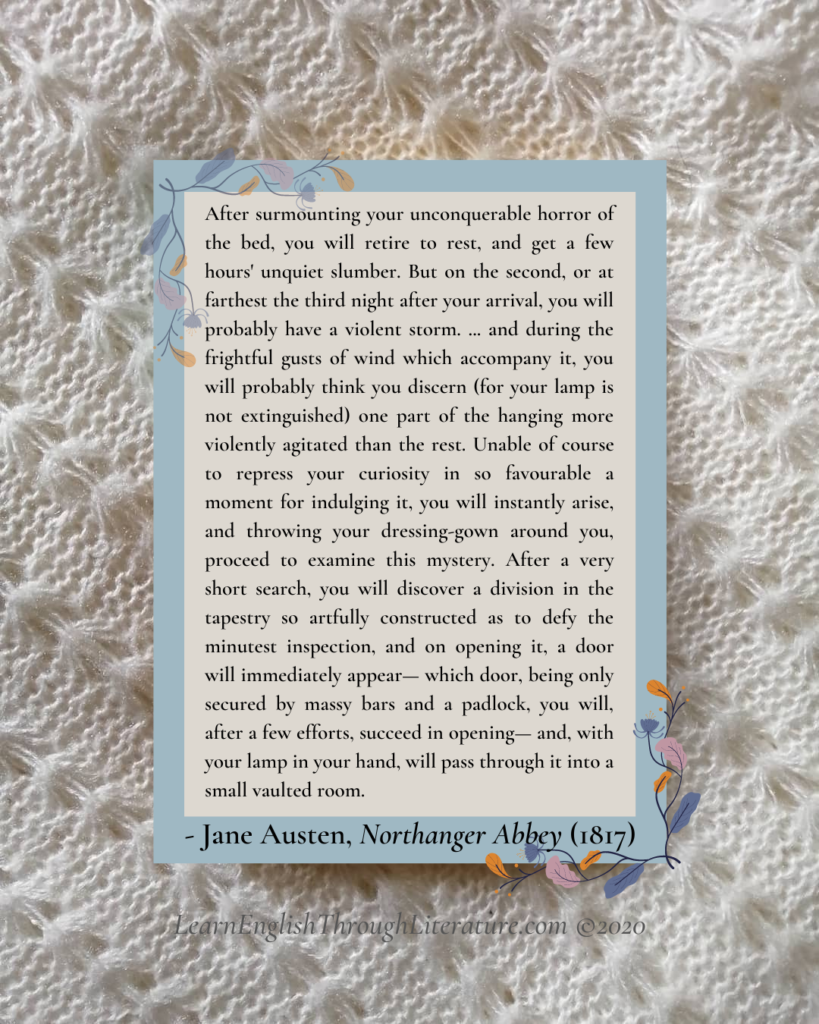Lesson #173: The Passive Voice in Gaskell’s ‘Cousin Phillis’
📗 Early as it was, every one had breakfasted, and my basin of bread and milk was put on the oven-top to await my coming down. Every one was gone about their work. The first to come into the house-place was Phillis with a basket of eggs. Faithful to my resolution, I asked – ‘What are those?’ She looked at me […]
Lesson #173: The Passive Voice in Gaskell’s ‘Cousin Phillis’ Read More »

